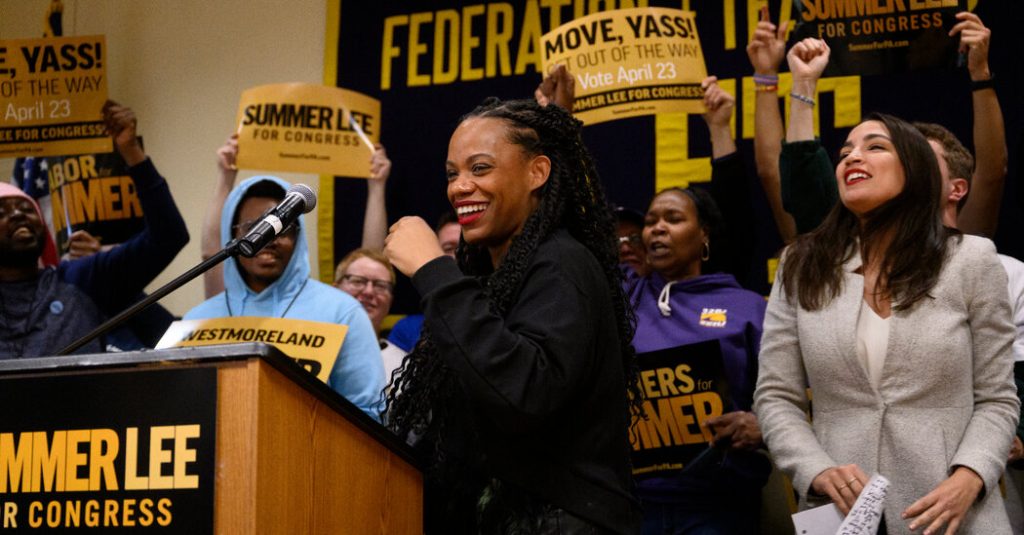As Summer Lee heads into the primary contest for Pennsylvania’s 12th District, the once-expected ideological battle over her criticism of Israel has been limited. This shift reflects changes in political attitudes since the conflict in the Middle East, with many Democrats increasingly critical of Israel’s conduct of the war. Lee, backed by the party establishment and prominent left-wing lawmakers, has enjoyed the benefits of incumbency, not facing well-known challengers like in her previous race. Despite her strong record in Washington, Lee’s views on Middle East policy have put her at odds with some constituents, especially Jewish voters in Squirrel Hill, where concerns about anti-Semitism run high following divisive events in the region.
In this primary, Lee faces a younger opponent, Bhavini Patel, who criticizes Lee for straying outside the political mainstream and not fully supporting President Biden. Patel portrays herself as a unifying force, focusing on the 2024 general election and voter rejection of extremism. Despite these challenges, Lee remains confident in her support base and vows to help Biden secure every vote within her coalition. Tensions have heightened around the issue of Middle East policy, exemplified by Lee’s public displays of solidarity with Palestine, contrasting with the positions of the U.S. government.
The competitive nature of the primary is most evident in Squirrel Hill, where Jewish community leaders and voters are divided over Lee’s stance on the Middle East conflict. The discourse in this area is emotionally charged, with residents expressing disappointment and concern over Lee’s views and actions. For some, Lee’s approach to the Gaza war demonstrates a commitment to justice and humanitarian principles, resonating with voters who value moral consistency in their representatives. However, others feel alienated by Lee’s positions and question her empathy towards a community deeply affected by past acts of violence.
As the primary approaches, efforts to mobilize voters, particularly observant Jewish constituents, have been intensified. The outcome of the election is likely to be influenced by the extent to which candidates can address the complex sentiments surrounding the Middle East conflict, anti-Semitism, and political representation. Lee’s broad support base and establishment backing have positioned her as a frontrunner, but challenges persist in reconciling the diverse perspectives within her district. The primary has become a testing ground for the Democratic Party’s shifting stances on international relations and the representation of marginalized communities in policymaking. Ultimately, the outcome will reflect not only prevailing political dynamics but also the responsiveness of candidates to the evolving concerns of constituents in a post-conflict environment.


